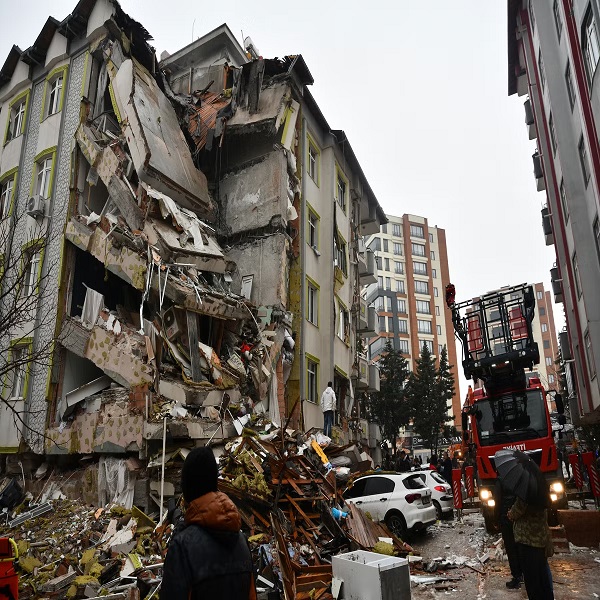Abtvgh/ GFA/

Life for millions in Türkiye and Syria changed forever last Monday, as two consecutive earthquakes sent shockwaves across hundreds of miles.
Nine hours apart and with magnitudes of 7.8 and 7.5 on the Richter scale, the quakes rocked Türkiye and Syria and were the region’s strongest in nearly a century.
The death toll from the quakes is more than 22,000 as of yesterday, with many still missing and critically injured.
The World Health Organisation put the number of people affected by the disaster at 23 million. At least 6,000 buildings collapsed, many with residents still inside them.
Rescue efforts continue to be the top priority, with some 25,000 deployed in Türkiye and thousands more from overseas — but a bitter winter storm now threatens the lives of the survivors and of those still trapped under the rubble.
Syria, ravaged by 12 years of war and terrorism, is the least prepared to deal with such a crisis. Its infrastructure is heavily depleted, and the country remains under Western sanctions. Thousands of those in the affected areas are already refugees or internally displaced people.
With the dust of the catastrophe still settling, regional analysts are zoning in on the longer-term ripple effect that the catastrophe could have on Türkiye, a country whose 85 million-strong population was already mired in economic problems — and whose military, economy, and politics have a major impact far beyond its borders.
The ABTVGH mourns with the governments and people of Turkey and Syria over the loss of lives and property.
We are equally troubled by the inability of the rescuers to find the Ghana international soccer star, Christian Atsu. Mr Atsu joined Turkish Super Lig side Hatayspor in September 2022 after spending nearly a decade at Chelsea and Newcastle United.
The coach of Christian Atsu’s Turkish club, Hatayspor, said last Wednesday that the Ghana midfielder had not been found following the devastating earthquake in Türkiye. As the rescue effort is ongoing, we remain confident that the player will be found.
For us, the response of the world holds valuable warnings and lessons that extend well beyond the two countries hit by the earthquakes.
The prompt help that Türkiye, in particular, has received from parts of the world shows that the international community can — if it decides to — put geopolitics aside to help a country in need.
Many Syrian victims of the earthquake were already refugees in their own country, living in makeshift homes. Parts of earthquake-hit Syria are controlled by rebel groups; yet the country’s government insists that all international aid must be routed through its agencies.
While the Syrian government must work with aid groups to ensure that help reaches all parts of the country’s territory, regional players, such as Türkiye and Iran, and global powers — the US and Russia — must reflect too.
Meanwhile, the scenes of death and despair in Türkiye and Syria should also serve as an overdue reminder of the risks Ghana faces in ensuring that our buildings are regulated.
While pleading for more aid for the victims of the earthquake, particularly in Syria, we urge our district assemblies to take a cue by ensuring that earthquake-prone zones within localities are properly mapped out so that construction does not take place there.